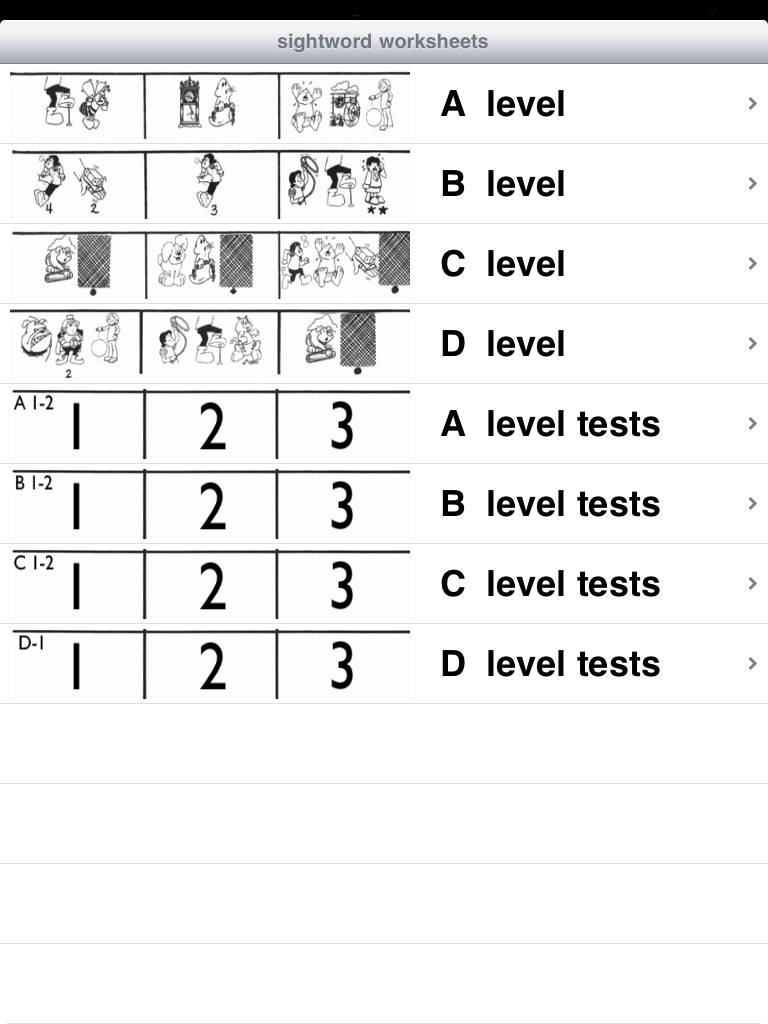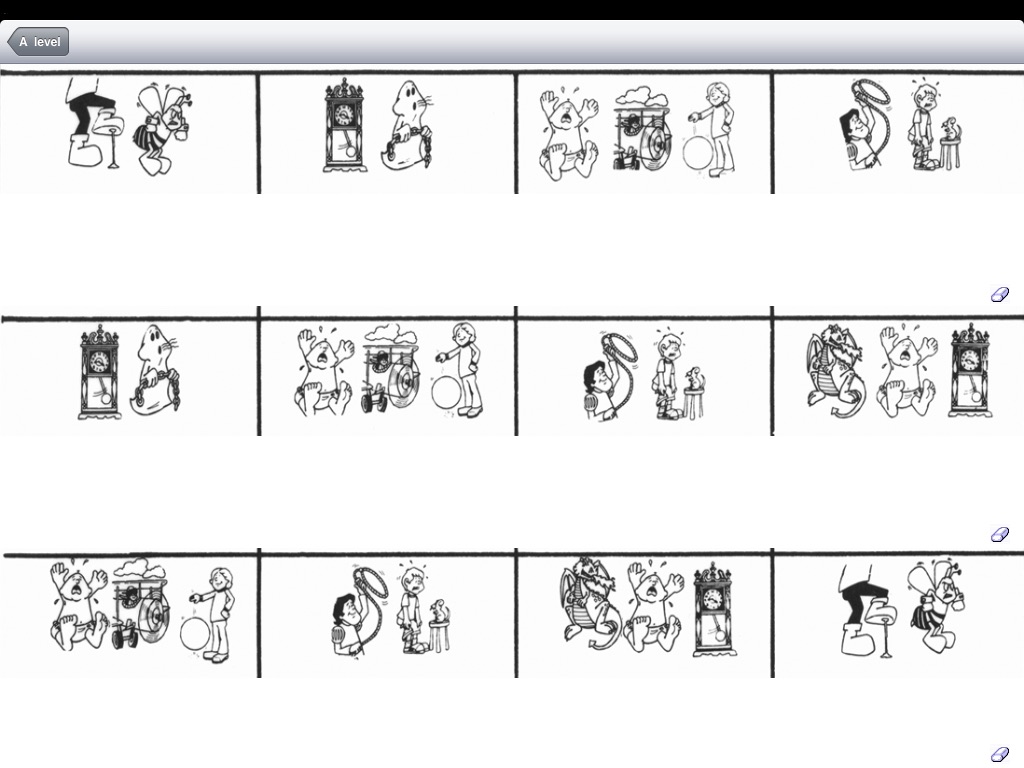
Sightword Worksheets
Center for Innovation in Education
Sightword Worksheets
Description
The thirteenth of the fourteen apps that comprise the Baratta-Lorton Reading Program.
The Reading Program is a reading and writing curriculum for beginning readers and any child who has already experienced difficulty in learning to read.
99% unique – 100% effective - 100% free
Background for the fourteen apps
The Baratta-Lorton Reading Program also known as Dekodiphukan (pronounced decode if you can) was developed by the Center for Innovation in Education whose many other offerings include Mathematics Their Way, the first non-traditional math curriculum adopted in by the State of California.
Dekodiphukan has been in use in classrooms across the United States and Canada since 1985. The Program has been used to teach thousands of children to read and to write regardless of background or supposed lack of reading readiness.
To date, no child using the program in a classroom setting has ever failed to learn to read or to write.
This Dekodiphukan reading and writing curriculum is now a series of fourteen apps plus a parent-guide for the iPad that, within a period of six months to a year (or occasionally a bit longer for some special needs children), will enable every child using it to read and to write. Reading with enjoyment. Writing creatively.
Dekodiphukan is a full fledged curriculum. It is a set of specific learning activities, not a set of games. The curriculum’s fourteen apps are all free with no ads - popup or otherwise - included. While the apps may be downloaded all at once and stored in a folder on the iPad, no more than two or three of the apps are used at any one time by the child.
Sightword Worksheets
The thirteenth of the Fourteen Apps
Seventy-five words comprise half of all the words that appear in books written in English. Mastery of these seventy-five words as sight words allows a child to recognize fifty out of every one-hundred words in almost any book. Sixty-five percent of all the words the child will encounter in his or her first years of reading consist of just one hundred basic words. The Sightword Worksheets teach this basic vocabulary.
The “sight” in Sightword refers to the ability of the child to recognize the word instantly on sight, without the need of sounding it out. The child who reaches this level can already sound out each word and, in fact, must do so to learn the word. The Sightword Worksheets are not surrogate flash cards whose purpose is to cause the child to memorize words for instant parroting on demand. Rather, they have as their purpose allowing the child to internalize a basic vocabulary of words that he or she can read and write quickly and with ease.
Knowledge of—as opposed to memorization of—a basic set of words gives the child an extensive writing vocabulary for use in his or her creative writing activities. A child who can already spell words like “the”, “is”, “and”, “we”, “they”, “with”, “on”, “can”, “down”, “all”, “from”, and so on, without having to stop and think about spellings, finds it much easier to write out what he or she wants to say. Conversely, a child who must ask for assistance with even the most basic words spends so much time thinking about how to write and spell the words in the story that he or she can quickly lose track of what it was he or she wanted to say.
The Sightword Worksheets are introduced after the child has completed all of the Writing Worksheets at both the two and three-sound levels. This means that as the Sightword Worksheets are introduced, the child is already well practiced in use of the Decoding Chart.
Sightword Worksheets
Introduced after the child has completed the Writing Worksheets at the two and three-sound levels
Teaches the child a basic site vocabulary of 157 words
Audio tests are provided to insure the child knows the words


